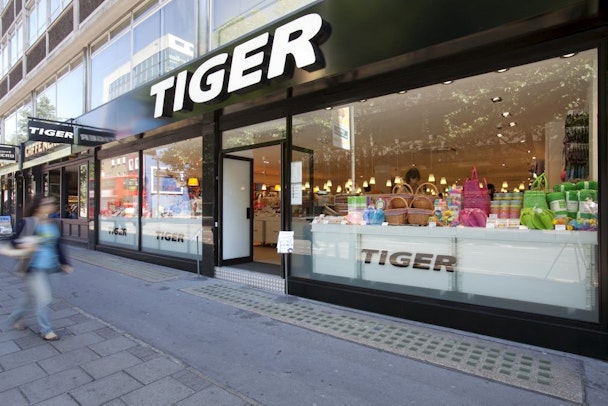How Danish 'pound-store' Tiger broke free from its cheap and cheerful image
According to YouGov, Aldi and Lidl are currently the UK’s most popular brands. But these two leading global discounters are not the only brands to successfully shift consumer perceptions towards low cost items.

Danish discount brand Tiger
In fact, some value brands have gone as far as creating partnerships with their upmarket cousins to attract new customers, such as Ikea's upcoming collaboration with Danish design brand, Hay, for a new line of furniture and homeware.
But is this mutton dressed up as lamb or are value-focused brands transforming the traditional retail sector?
If you look at Scandinavian brands like Ikea and Tiger, they’re not perceived as low-cost sellers, but rather as ‘democratic brands’; fit for everybody, no matter your scale of income. They’ve become democratized not by chance, or luck, but through their ability to comprehend what makes them special, and by leveraging and exploiting the fact that consumers are taking their money more seriously. Value is catching up with quality.
Yet the interesting thing about Tiger in particular is that it started life as a pound store and is still very much perceived to be so in its birthplace of Denmark. But as the discounted retailer started popping up in other countries, it cleverly elevated that offer well beyond its ‘pound store’ image – delivering an updated and very much desired and recognisable store format. Price really isn't a factor for its brand anymore, it's just what's on the label.
Working with Tiger on its global expansion we at Saffron leveraged its Danish provenance and design credentials – it has won awards for in-house product design – in a uniquely colourful and quirky way. The fact that most of its products come from China gets lost in the mix – it’s not relevant. The reality is that there’s little stopping someone from copying its business model; it’s a well-worn path to buy cheap in China and sell at even cheaper prices in consumer-centric Western markets!
Our main challenge was that to elevate Tiger’s proposition, we had to look at what differentiates this retailer from other value brand competitors. What was unique about its shopping experience? Why did people shop there? What did they want? Was it about more than slashed prices? The response was unanimous – Tiger sold everyday items with a quirky and charming twist.
So we developed the tagline ‘Everyday Magic’ – a brand message that captures the retailer’s essence and sits at the heart of all its brand activity, driving the in-store experience and helping them retain the magic as they expand all over the world.
Tiger’s store layouts are designed to deliver an experience that almost resembles a journey of discovery. Today’s consumers are no longer satiated with the mere act of purchasing a product – they can do that online from the comfort of their living-rooms. When in-store they demand a compelling experience – and Tiger never fails to deliver with its ‘treasure-hunt’ layout.
Tiger taught us that cheerful doesn't have to mean cheap and that provenance can be a powerful magnet, as the brand’s heritage was pivotal in developing the global look and feel. Expanding beyond its home market into unknown territory offered Tiger the opportunity to re-define perceptions of the brand, moving away it’s the ‘pound shop’ connotation in Denmark to become a quirky, global, independent retailer.
That said, going global is a move fraught with its own challenges – the further you get from home the more important it is that your brand is articulated and codified so that, for example, colleagues in Japan understand it as intuitively as people at HQ on the other side of the world. While new markets offer new opportunities to do away with old and redundant brand images, it’s imperative to transfer and maintain a unified feel through a simple yet representative brand message.
The main step change for value brands to break free from their ‘cheap and cheerful’ heritage is in improving the quality of their products, whilst simultaneously offering a unique and authentic shopping experience. It’s only with the combination of these things that perceptions can and will change. Tiger are a case in point.
Aldi and Lidl have also used their brand value proposition mixed with quality provenance to shake up the retail world – their products win multiple awards, ahead of market leaders such as M&S and Waitrose, and fortuitously for only a fraction of the cost.
Value and cheerful brands are no longer exclusively synonymous with low cost, just as luxury and quality are not synonymous with upmarket and pricey. It’s time to change the way you shop. We have.
Sahil Sachdev is strategy director, brand innovation at Saffron.

